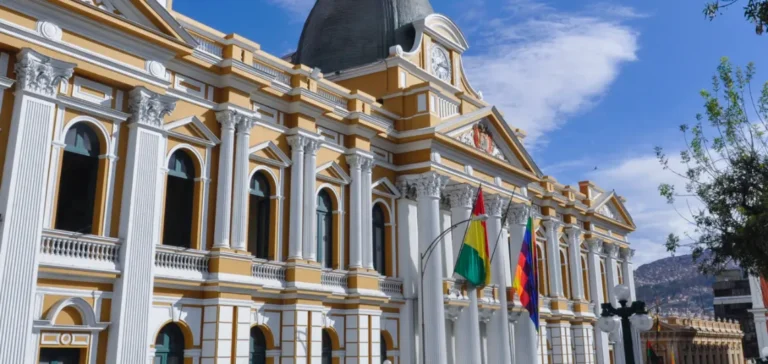The Bolivian parliament has approved a law authorising the temporary import of fuels by private operators, amid a severe nationwide shortage. The measure, valid for a period of three months, aims to ensure the supply of gasoline, diesel and liquefied petroleum gas (LPG), as the state is no longer able to guarantee regular distribution through the public oil company Yacimientos Petrolíferos Fiscales Bolivianos (YPFB).
Until now, YPFB handled all international purchases and distributed fuels on the domestic market at subsidised prices. This policy, implemented for several years, has significantly contributed to the depletion of the country’s dollar reserves, compromising its ability to maintain essential imports for economic operations.
Exceptional opening to imports under state supervision
According to the Chamber of Deputies, the new legislation allows the direct import of fuels without the collection of customs duties, both for companies and citizens. These operations will remain supervised by the state, which will oversee the introduction of the products into the territory. Imported fuels will be sold at market price until public supply capacity is fully restored.
The bill was initiated under a citizen legislative initiative, supported by employer organisations and civil entities, highlighting growing mobilisation from the private sector in response to the inefficiency of the centralised model. The decision comes just weeks before the end of President Luis Arce’s term, whose economic management has been marked by large-scale subsidies and a significant drop in foreign currency liquidity.
Ongoing economic crisis as background
Bolivia is facing a deteriorating macroeconomic situation, compounded by tensions in energy supply. Annual inflation exceeded 23% in September, and World Bank forecasts indicate a continued national economic contraction through 2027. In this context, the transport sector—highly dependent on subsidised fuel—was among the first to report regular delivery disruptions.
President-elect Rodrigo Paz, currently a centrist senator, has announced plans to cut fuel subsidies by half. The programme accounted for $2.177bn in the 2025 budget. He has nevertheless stated that public transport operators will continue to benefit from a price stabilisation mechanism to sustain their operations.
Immediate impact on market and infrastructure
In several regions of the country, petrol stations are experiencing unusual congestion, with queues sometimes stretching for hours. LPG shortages are especially critical in rural areas, where it is often used as the primary source of domestic energy. The new measure also aims to prevent a logistical paralysis that could have broader repercussions on the national supply chain.






















